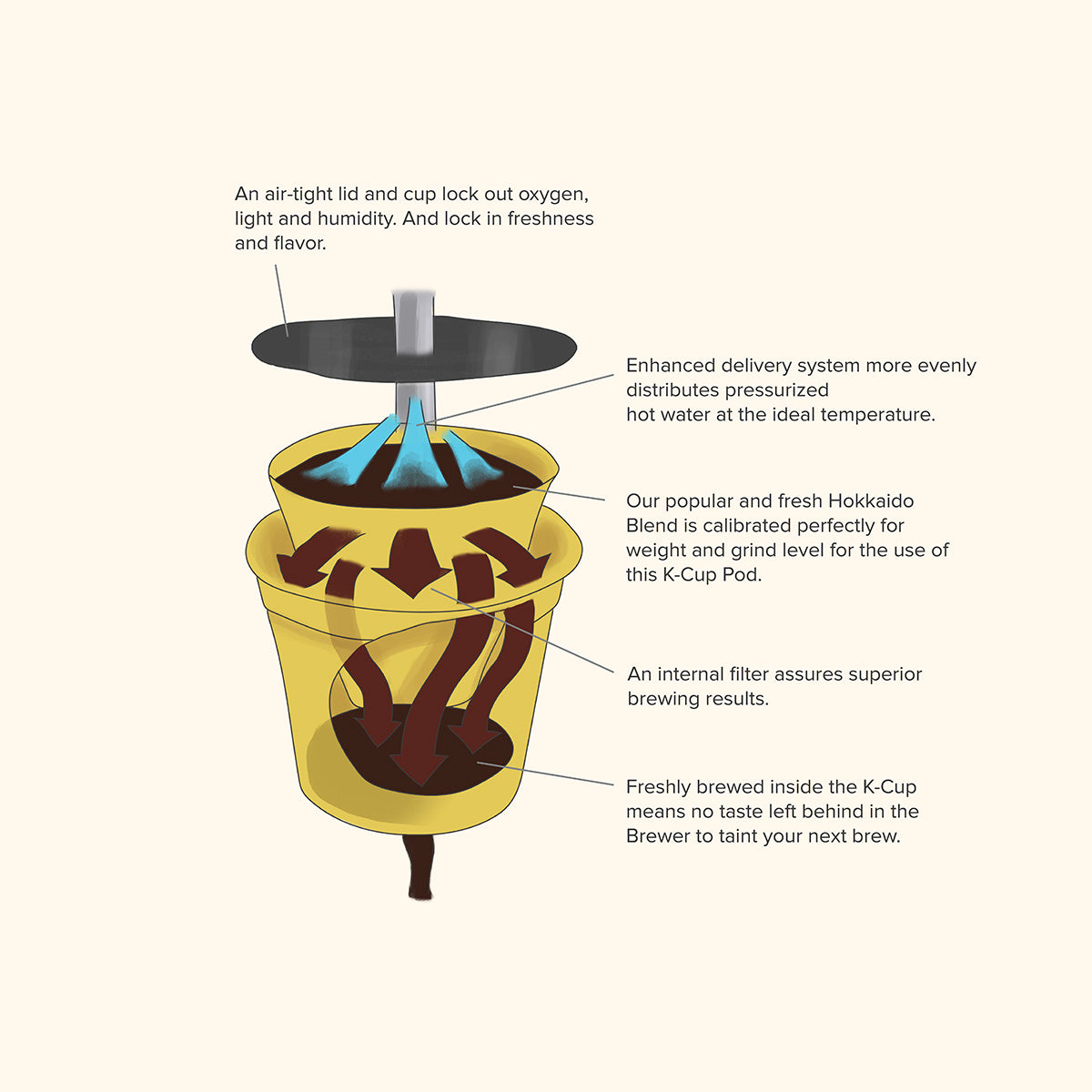Many people boast a coffee habit that is hard to shake off. They enjoy their daily cups without much consideration for the effects of their caffeine fix on their health, all the while it causing many changes in the body. If you’re a coffee-lover, it is absolutely worth it to take the time and the effort to learn just how drinking coffee might be affecting your health - or in the case of this article, your organs.
As popular as it is, coffee comes across as simple and familiar, or even mundane despite the boost its active chemical gives. However, the truth is that this very popular beverage is pretty complex. As there are many layers to the coffee experience, so is the relationship to your health.

To add to the confusion, recent studies are now debunking the results of older studies. So your impression of coffee may no longer be accurate if it is based on what you were told as a child.
Indeed, the tides have turned as far as coffee’s reputation is concerned. Research results are showing that it does not deserve the bad rap that the previous decades had given it. These days, coffee is considered to actually be good for our health.
Nonetheless, as mentioned earlier, coffee may affect each of our organs in a different way; and in this article today, we are taking a dive into how it impacts liver and kidney health.
The Effects of Coffee on the Liver
Based on numerous studies, current knowledge on the relationship between coffee and liver health is favorable. A chemical called paraxanthine is produced when our liver digests caffeine, and it is known to slow down scar tissue growth in cases of fibrosis. This quality of slowing down scar tissue growth holds the possibility to also help in fighting alcohol-related cirrhosis, liver cancer, hepatitis C, and non-alcohol-related fatty liver disease.
Besides caffeine, coffee also has kahweol and cafestol, chemicals known to help combat cancer. Meanwhile, the acids in coffee, both caffeinated and otherwise, may work to deter hepatitis B-causing virus.

These claims are backed by multiple studies. Here are two of the most significant:
2016 British Liver Trust Report
In 2016, the British Liver Trust reviewed, analyzed, and compiled various studies into one report titled, “Coffee consumption and the liver - the potential health benefits.” Its main findings are as follows:
- Regular moderate consumption of coffee may prevent liver cancer, which the World Health Organization has confirmed after reviewing over a thousand related studies in humans.
- Coffee intake has the capability of slowing down the progression of some patients’ liver disease.
- Coffee lowers the risk of liver problems like cirrhosis and fibrosis.
Take note that these positive effects apply no matter the preparation of the coffee.
2021 BMC Public Health Study
In June of 2021, “All coffee types decrease the risk of adverse clinical outcomes in chronic liver disease: a UK Biobank Study” was published in the BioMed Central Public Health journal. It involved almost half a million participants over the course of a decade and produced the following very similar findings.
- Drinking coffee considerably reduces the risk of various liver diseases, including liver cancer, chronic liver disease, and fatty liver disease.
- The sweet spot falls on the range of three to four cups of coffee, caffeinated or otherwise, a day.
- The perceived benefit extends across all kinds of coffee.
There was some contention to the results from Prof. Nathan Davies from the Institute for Liver and Digestive Health of the University College London. He cautioned that the findings might not be universally applicable since they were primarily based on white individuals of an upper socioeconomic status. He said that the study proved in no way that coffee is an anti-liver disease superfood, adding that there were even studies from which the opposite could be inferred.
The Effects of Coffee on Kidneys
Besides being a mental and physical stimulant, caffeine may also cause a rise in blood pressure and have a diuretic effect. This implies that coffee would have a consequential effect on the kidneys; however, there are ways in which coffee and caffeine are known to impact kidney health directly.
For instance, oxalate stones are among the most common kinds of kidney stones people develop; and because coffee is one of the foremost oxalate sources, many urologists advise people prone to develop kidney stones to minimize their coffee consumption. However, new evidence may soon debunk this belief.
Meanwhile, there are conflicting findings regarding the association between coffee and kidney cancer. Some studies found lower risks of renal cell carcinoma in relation to consumption of caffeinated coffee. On the other hand, other studies showed a link between decaffeinated coffee intake and higher renal cell carcinoma subtypes.

2019 UK Biobank Study
This analysis of the UK Biobank baseline data and its findings were published in the American Journal of Kidney Diseases in 2019 - it was titled, “Coffee Consumption and Kidney Function: A Mendelian Randomization Study,” the study aimed to figure out the effect of coffee on kidney function.
Using genetic data, it showed evidence of a beneficial effect, particularly on the reduction in kidney stones: higher the coffee and caffeine consumption, lower the risk of kidney stones. Findings indicated that going from a cup to a cup and a half of coffee a day reduced the risk by 40 percent. The encouraging outcome is something that the researchers felt hopeful about, given the widespread coffee intake and the increasing issue of chronic kidney disease all over the world.
Other studies have also shown positive effect of coffee on the kidneys. For an example, a study in Korea performed in 2008 analyzed the habits of thousands of women, which led to the finding that drinking coffee may be associated with a decrease in the prevalence of kidney problems. Another study in 2016 involved the coffee-growing villages along the Pacific Coasts of Nicaragua, which found that these places manifested a lower prevalence of chronic kidney disease.
So, is Coffee Bad for Your Liver and Kidneys?
When consumed in moderation, coffee is not bad for your liver and kidneys. Furthermore, coffee has been linked to reduced risks of liver diseases such as cirrhosis, liver cancer, and fatty liver disease. As for the kidneys, research shows that coffee consumption may help lower the risk of developing kidney stones and other kidney-related issues. However, it is important to stay mindful of one's caffeine intake in relation to your own health conditions, as further research is still needed for more definitive answers.
Get Free Bonus Books

Sign up for free to the Coffee Club to get advice and exclusive articles about how to choose Japanese Coffee, and tips, tricks, and recipes for enjoying Japanese coffee.
About the author
Kei Nishida
Author, CEO Dream of Japan
Certification: PMP, BS in Computer Science
Education: Western Washington University
Kei Nishida is a passionate Japanese tea and coffee connoisseur, writer, and the founder and CEO of Japanese Coffee Co. and Japanese Green Tea Co., both part of Dream of Japan.
His journey began with a mission to introduce the world to the unparalleled quality of Japanese green tea. Through Japanese Green Tea Co., he established the only company that sources premium tea grown in nutrient-rich sugarcane soil—an innovation that led to multiple Global Tea Champion awards.
Building on this success and his passion for Japanese craftsmanship, Kei expanded into the world of coffee, pioneering the launch of Japanese Coffee Co., the first company to bring Sumiyaki charcoal-roasted coffee to a global audience. His dedication to authenticity and quality ensures that this traditional Japanese roasting method, once a well-kept secret, is now enjoyed worldwide.
Beyond tea and coffee, Kei has also introduced Japan’s legendary craftsmanship to the world through Japanese Knife Co., making handmade katana-style knives—crafted by a renowned katana maker—available outside Japan for the first time.
Kei’s journey continues as he seeks out and shares the hidden treasures of Japan, one cup and one blade at a time.
Learn more about Kei

![Asa Tsuyu Blend [Light Blend] Coffee (Colombia, Brazil, Ethiopia)](http://japanesecoffeeco.com/cdn/shop/files/web-ready_Asa_Tsuyu_Blend_life-style.jpg?v=1754689231)
![Asa Tsuyu Blend Package [Light Blend] Coffee (Colombia, Brazil, Ethiopia)](http://japanesecoffeeco.com/cdn/shop/files/AsaTsuyuBlendpackage.jpg?v=1754689220)
![Asa Tsuyu Blend [Light Blend] Coffee Beans (Colombia, Brazil, Ethiopia)](http://japanesecoffeeco.com/cdn/shop/files/AsaTsuyuBlendcoffeebeans.jpg?v=1770838125)





















